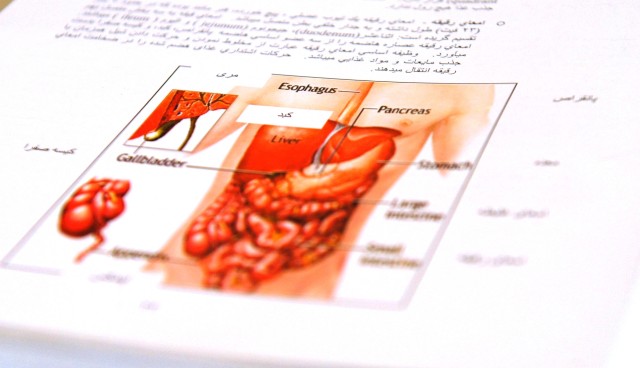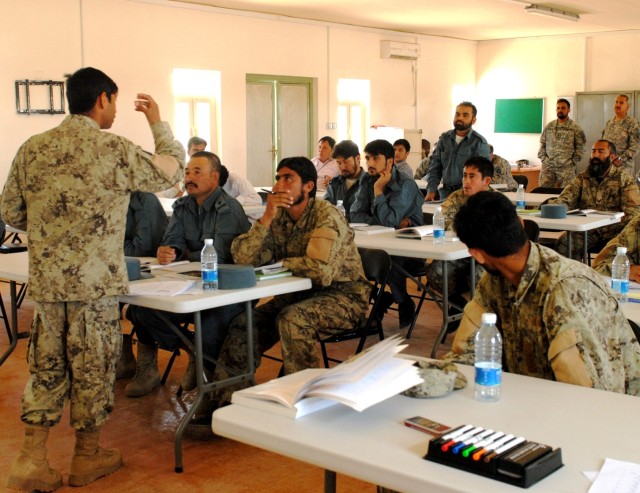KANDAHAR, Afghanistan - Police graduates of the Regional Military Training Center's Combat Medic Course here are teaching their fellow Afghan National Police at the Joint Regional Afghan National Security Force Center how to save lives.
The training is taught within the Regional Support Command-South's area of responsibility.
"It's a Ministry of Interior program designed to enhance the capabilities of ANP without continually depending on Afghan National Army and Ministry of Defense," said Sgt. Maj. Norman McAfee, Regional Command (South), a course adviser.
Previously, the only course available to any Afghan police or army was the Combat Medic Course at the MoD Regional Military Training Center.
The course has the capacity for 50 students, to include Afghan National Civil Order Police, Afghan Border Police, and Afghan Uniformed Police. Currently there are 16 students and several linguists in the eight-week course at the JRAC.
Common tasks in the class include treating shock and massive bleeding, airway management, and personal hygiene.
By the end of the course, medics will be able to treat a variety of injuries, said adviser Capt. Eric Doggett.
"More than a Combat Life Saver but not as much as an International Security Assistance Force (ISAF) Medic," Doggett said. "The course is designed to educate the ANP medical personnel in the immediate care that can save a casualty's life, such as stopping severe bleeding, administering intravenous fluids to control shock and performing needle chest decompression for a casualty with tension pneumothorax."
The course materials are taken from the RMTC's course, but ANP-specific manuals are due to arrive in a few weeks. The advisers of the Medical Training and Advisory Group-Police (MTAG-P), Regional Support Command (South), hope to transition the next class to fully ANP-run and supported.
Advisers Sgt. Maj. McAfee, Capt. Doggett, and Lt. Col. Mark Duffy currently facilitate the course.




Social Sharing